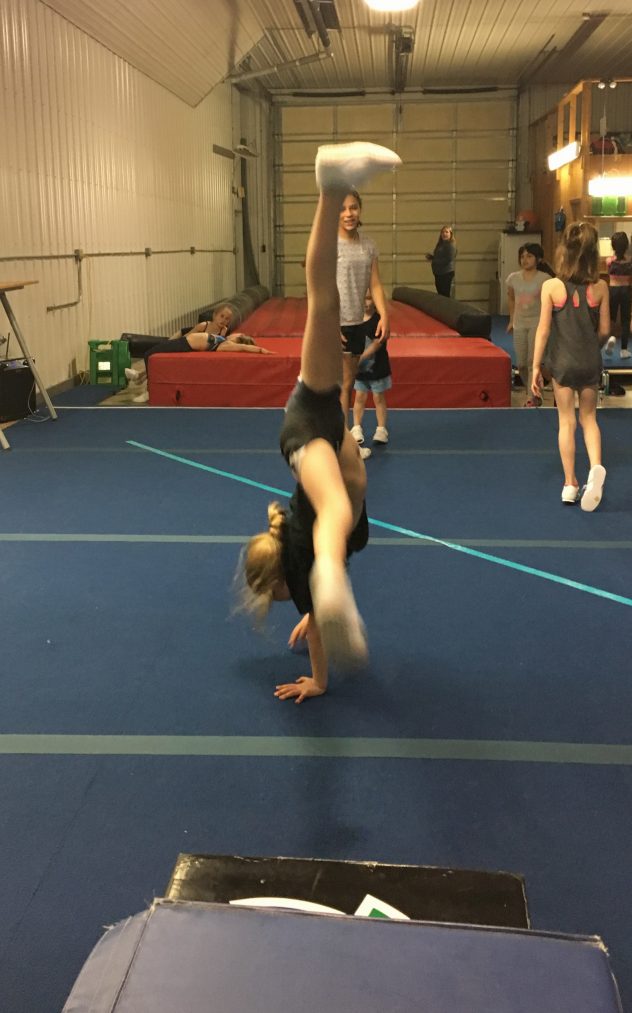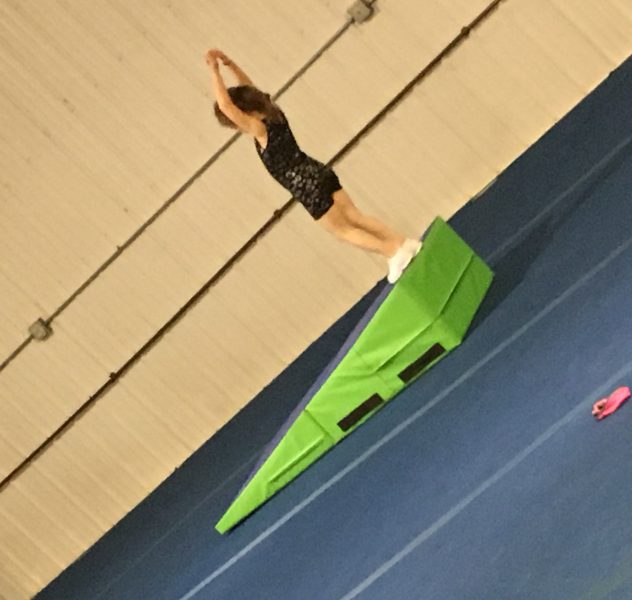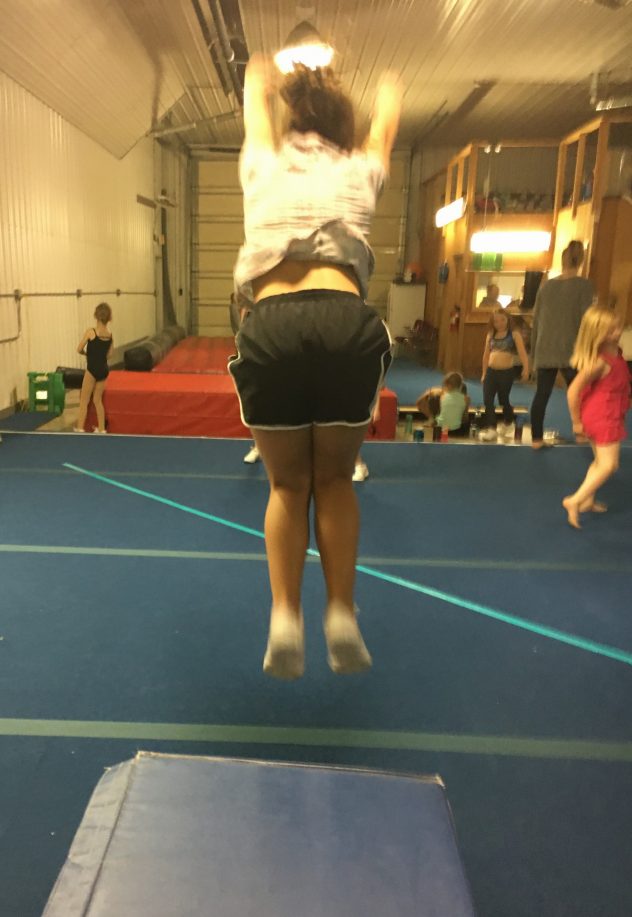I love private lessons. I think they offer invaluable coaching and hands on critiques to get the most out of your athlete. Our competitive athletes are only in the gym 1-5 hours a week, while the average gymnasts is in their gym between 10-15 hours each week. While team and classes can provide strong progress for most athletes, nothing replaces the focused learning they receive in one on one lessons. In a private lesson, athletes can expect a week’s worth of tumbling, and at our facility privates are currently only $20/30 minutes.
It is important to remember that we value proper progressions and body-before-skill at Ideal. With that being said, if your athlete hasn’t mastered a round off; they probably won’t achieve a back handspring after a private or two. We will still work the beginner skills, perfect the basics and build the circuits needed for the desired skill. Here are the best practices you should put in place to assure getting the most for your money with private lessons:
Best Practice #1: The rule of three
Private lessons are not unicorns. One lesson for a skill isn’t going to magically make it appear. Athletes will still be expected and held to a high standard of excellence with all progression skills in addition to having a solid understanding of the necessary drills. We want to assure athlete confidence, and not build them to rely on coaches’ spots, so you will see less spotting of the actual skill – and more building of the pieces necessary for success. The more often you are able to get into private lessons (or any consistent proper repetition) the faster you should see progress. That’s why we recommend the rule of three! A minimum of three privates for new skills or perfecting skills, at least every other week (in addition to team/classes). If you’re not able to do that, privates may not be the best place to invest your time/money. With the exception of athletes coming in for a tune up of skills under a coach they’re familiar with! When kids come back to the gym after a break or vacation it can be beneficial to have the dedicated one-on-one time with their coach.
Best Practice #2: Arrive Early
Warm ups are vital. Its a safety piece that we do not allow athletes to skip. Cardio, Plyometrics, and basic bodyweight movements get the blood flowing in a way that allows an athlete to handle more intense skills. Athletes should arrive 15 minutes prior to their private time, and warm up as instructed. Most coaches will ask for some cardio, strength raining, and technical warm up skills. We have a warm up poster in the gym that should give athletes a good handle on warming themselves up. Otherwise, ask your coach for 4-5 things you can do before starting the private. Now, do not confuse drills, conditioning or other activities within the private with the warm up.
Keep in mind that it is primarily up to the parent to get the athlete to their private on time. If you are late, we will not add additional time to make up for your tardiness.
Best Practice #3: If you want it, you have to work for it.
In a private you can get significantly more reps then with a class/team practice. We preach that reps and drills, muscle memory and strength/flexibility are the key ingredients to creating athletes capable of mastering skills. The one-on-one attention in a private lesson also allows for more quality practice, as the coach is focused on one athlete and their technique throughout the entire skill/drill. But our best athletes don’t just work hard in the gym. They’re conditioning, working body shapes, performing some drills and journaling about their abilities from home. It’s important that we’re building muscle, muscle memory, perfection and a strong mental attitude throughout all stages of training. Your coach should work with your athlete on a minimum of 4 things they can be doing at home to succeed. If the athlete cannot properly communicate this to the parent at the end of the private lesson, ask the coach if they can go over the skills with both parent and athlete. When I do privates I like to bring the parent in for the last few minutes to have the athlete demo the homework I’ve given them. It allows me to show basic corrections to parents while giving you an option to ask questions or take videos/photos. We love to see our athlete progress, and our professional experience has shown that athletes who put in homework and work to master their assigned drills tend to obtain solid skills at an accelerated pace.
Best Practice #4: Expect progress and competence
Contrary to popular belief, privates are not an opportunity to purchase the next skill your child wants (or the next skill you want for them). What really happens in a private is unpredictable. Every athlete learns differently, has different body structure, and different habits; all of which has an effect on the skills they master. We cannot guarantee that “x” amount of privates will produce “y” skill; we can confidently say that consistent privates will increase competence and progress. The more you are able to focus on the skills learned in your lessons and build good habits in and out of the gym, the stronger athlete you will be.
Best Practice #5: Understand your role
After a private ends, your role is more vital than mine. You get to be your child’s biggest cheerleader. Instead of asking skill based questions, ask emotional based questions. Avoid “Did you get your back handspring?” or “How close until you can throw your back tuck?” Focus more on “Did you try your best?” or “Was it fun working with coach Chelsie?”
While I’m not attempting to give parenting advice, I am offering skill development advice from my professional opinion. This will produce the right mindset for growth and create a positive atmosphere. (If you havn’t heard of mindsets, there is an amazing book by Carol Dweck I’d highly recommend). Athletes with a fixed mindset are more likely to attribute slow progress to failure, and therefore internalize it to their identity. Athletes with growth mindsets are much more likely to take correction and literally grow in their skill sets.
If you follow these best practices, you should see results! If it’s not the results you were hoping for; talk to your coach about it! It’s always important to manage expectations from the beginning, but sometimes clarification is needed. As coaches we want to see success with all of our athletes, and for many privates can provide that added progress.
Email us at IdealCheerElite@gmail.com to schedule your private lessons for this summer!








